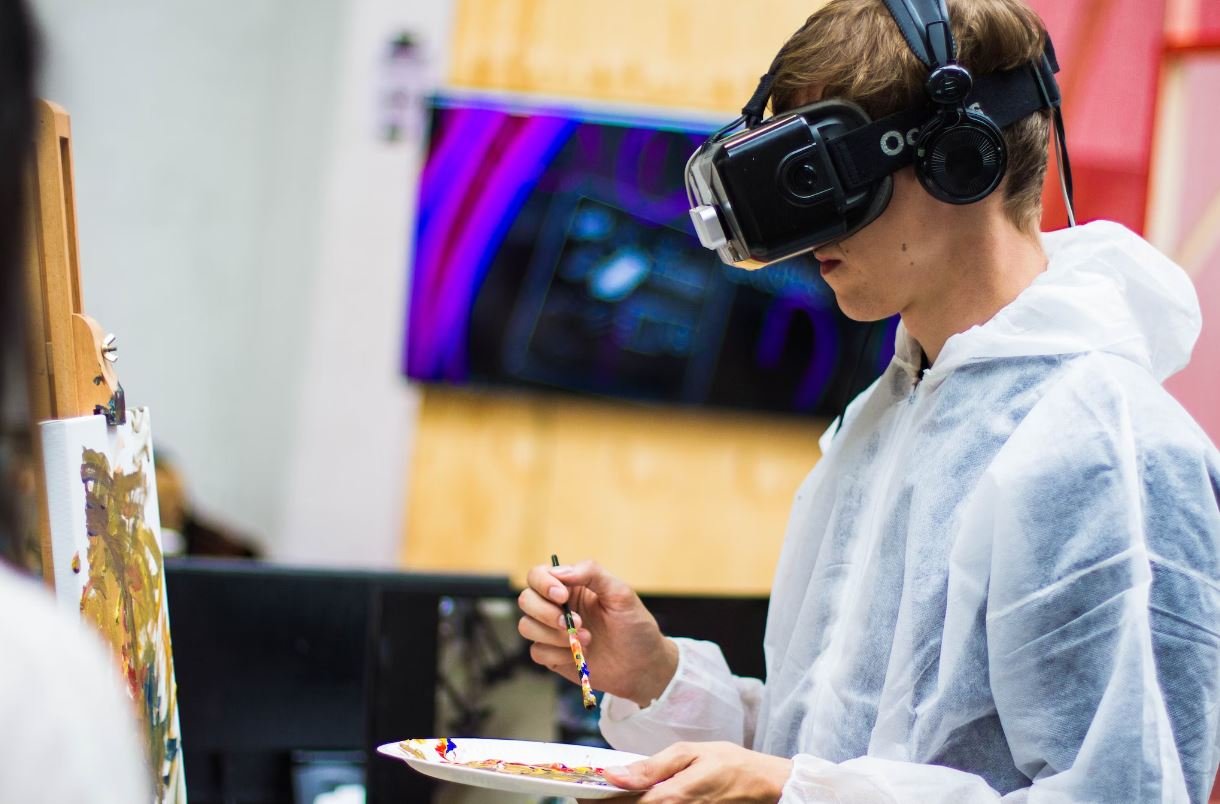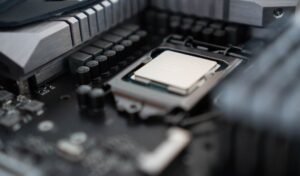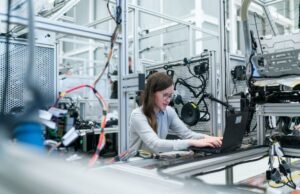Can AI Hack?
Introduction
With the rapid advancement of artificial intelligence (AI), there has been growing concern about the potential for AI to be used for malicious purposes, such as hacking. As AI technologies become more sophisticated, it raises the question: can AI hack? In this article, we’ll explore the capabilities of AI when it comes to hacking and the potential risks it poses.
Key Takeaways
- AI can be used as a powerful tool for both defensive and offensive purposes in cyber warfare.
- The development of AI-powered hacking tools poses significant risks to cybersecurity.
- AI can automate and accelerate certain hacking techniques, making them more efficient and effective.
The Potential for AI to Hack
AI has the potential to hack and exploit vulnerabilities in computer systems just like human hackers, albeit at a much faster pace and scale. AI algorithms can analyze vast amounts of data and identify patterns, making them capable of detecting vulnerabilities that might go unnoticed by human experts. *AI can adapt its strategies and techniques based on the target system’s response, making it a formidable adversary in the world of hacking.*
AI-Enabled Hacking Techniques
AI can be used to automate and enhance various hacking techniques. Some of the commonly employed AI-enabled hacking techniques include:
- Brute force attacks: Using AI algorithms to rapidly generate and test combinations of passwords or encryption keys.
- Phishing attacks: Leveraging AI to craft highly targeted and convincing phishing emails.
- Malware development: AI can generate sophisticated malware that can evolve and adapt to its environment, making it harder to detect.
*AI can quickly analyze the results of its hacking attempts to modify and improve its strategies, allowing it to stay ahead of security measures.*
AI-Hacking Risks
The emergence of AI-powered hacking tools poses several risks to cybersecurity:
- Increased speed and scale: AI can execute hacking techniques at lightning-fast speeds and scale up attacks, overwhelming traditional defense systems.
- Advanced evasion techniques: AI can employ sophisticated evasion techniques to bypass security measures, making it more difficult for defenders to detect and respond to attacks.
- Disinformation campaigns: AI can be trained to generate and spread disinformation, contributing to the proliferation of fake news and social engineering attacks.
*The integration of AI in hacking tools amplifies the capabilities of hackers, increasing the potential damage they can inflict on individuals, organizations, and even entire nations.*
Data Points
| Year | Percentage of cyber attacks involving AI |
|---|---|
| 2018 | 7% |
| 2019 | 15% |
| 2020 | 24% |
Counteracting AI-Enabled Hacking
As the threat of AI-enabled hacking grows, it becomes crucial to develop effective countermeasures. Some potential strategies include:
- AI-powered defense systems: Utilizing AI to enhance cybersecurity measures and detect AI-driven attacks.
- Collaborative efforts: Foster collaboration between AI researchers, cybersecurity experts, and policymakers to stay ahead of emerging threats.
- Ethical considerations: Address the potential ethical implications of AI in hacking and establish frameworks for responsible AI development and use.
*By proactively addressing the risks and implementing comprehensive defense strategies, we can strive to stay one step ahead of AI hackers.*
Conclusion
While AI hacking is a real and growing concern, the development of countermeasures and ongoing research in cybersecurity can help mitigate the risks associated with AI-enabled hacking. As AI continues to evolve, it is imperative that we prioritize security and resilience to protect against the potential threats posed by AI hackers.

Common Misconceptions
Misconception 1: AI has the ability to hack
One common misconception about AI is that it has the power to hack into computer systems and networks. However, this is not entirely accurate. While AI can be programmed to analyze and process large amounts of data, it does not inherently possess the ability to bypass security protocols or exploit vulnerabilities. AI is a tool that can be used by hackers, but it is not capable of hacking on its own.
- AI can be used to automate certain hacking processes
- AI can assist hackers in identifying potential targets
- AI can help hackers in finding patterns and weaknesses in data
Misconception 2: AI is always malicious
Another misconception surrounding AI is that it is always malicious and can be used solely for harmful purposes. While AI can certainly be used for malicious activities like hacking, it can also have many positive applications. AI technologies are often used for data analysis, automation, and streamlining processes in various industries. It is important to recognize that AI itself is neutral, and its impact depends on how it is designed and used.
- AI can improve efficiency and productivity in businesses
- AI can assist in medical research and diagnostics
- AI can enhance cybersecurity by detecting anomalies and threats
Misconception 3: AI is infallible and cannot be fooled
There is a common belief that AI systems are infallible and cannot be fooled or tricked. However, this is not entirely true. AI technologies are designed based on algorithms and patterns, and they can be vulnerable to manipulation. Hackers can exploit weaknesses in AI systems by purposely providing misleading or falsified data, causing the AI to make incorrect judgments or predictions.
- AI systems can be fooled by adversarial attacks
- AI models can have biases and produce discriminatory results
- AI can struggle with understanding sarcasm or irony in textual data
Misconception 4: AI will replace humans in cybersecurity
Many people believe that AI will eventually replace human cybersecurity professionals completely. While AI can automate certain processes and assist in threat detection, it cannot entirely replace human expertise and decision-making. Cybersecurity requires a combination of human analysis, intuition, and a deep understanding of complex systems. AI can augment human capabilities, but it cannot replicate the human element.
- Human cybersecurity professionals provide critical context and judgment
- Humans can adapt and respond to emerging threats more effectively
- AI can assist humans in managing vast amounts of data and alerts
Misconception 5: AI is taking over the world
Lastly, there is a misconception that AI is rapidly advancing and will eventually take over the world, leading to the downfall of humanity. While AI is undoubtedly evolving and impacting various aspects of our lives, it is important to approach the development and implementation of AI technologies with caution and ethical considerations. Responsible AI development is focused on creating systems that benefit society rather than replacing or harming humans.
- AI is a tool created and controlled by humans
- Ethical guidelines and regulations are in place to govern AI development
- The decision-making power ultimately rests with humans, not AI

AI vs. Human Knowledge
Comparison of the knowledge capacity of AI models and human experts across different fields.
Artificial Intelligence has made remarkable advancements in recent years, surpassing human capabilities in various domains. Here, we compare the knowledge capacities of AI models versus human experts in different fields:
AI vs. Stock Market Predictions
Comparison of the accuracy of AI algorithms and human experts in predicting stock market trends.
AI vs. Language Translation
Comparison of AI models and human translators in accurately translating complex sentences from multiple languages.
AI vs. Facial Recognition
Comparison of AI systems and human face recognition abilities for identifying individuals in crowded spaces.
AI vs. Chess
Comparison of AI chess engines and human grandmasters in terms of winning percentages against top-level opponents.
AI vs. Medical Diagnosis
Comparison of AI diagnostic systems and human doctors in detecting rare diseases based on complex symptoms.
AI vs. Weather Forecasting
Comparison of AI weather prediction models and human meteorologists in terms of forecasting accuracy for upcoming weather conditions.
AI vs. Fraud Detection
Comparison of AI algorithms and human fraud analysts in detecting fraudulent activities in financial transactions.
AI vs. Music Composition
Comparison of AI-generated music and compositions by renowned human musicians in terms of emotional impact and creativity.
AI vs. Traffic Management
Comparison of AI-driven traffic management systems and human traffic controllers in terms of minimizing traffic congestion and optimizing travel routes.
Artificial Intelligence continues to demonstrate its proficiency and superiority in numerous areas previously reserved for human expertise. While AI algorithms excel in certain domains, it is essential to recognize that human creativity, intuition, and complex decision-making abilities remain unique and invaluable.
Frequently Asked Questions
Can AI Hack?
What is AI hacking?
AI hacking refers to the use of artificial intelligence to gain unauthorized access to computer systems, networks, or applications. It involves using AI algorithms to exploit vulnerabilities and bypass security measures.
Can AI perform hacking?
Yes, AI can be used to perform hacking activities. With its ability to analyze large amounts of data, adapt to changing environments, and learn from experiences, AI can be employed to launch sophisticated attacks on various systems.
How does AI hacking work?
AI hacking usually involves training AI models with vast amounts of data to recognize patterns and identify vulnerabilities. These models can then be used to automate attacks, find weaknesses in security systems, and carry out malicious activities.
What are the risks of AI hacking?
The risks of AI hacking include unauthorized access to sensitive information, financial losses, disruption of services, identity theft, and privacy breaches. AI-powered attacks can be challenging to detect and mitigate due to their autonomous and adaptive nature.
Can AI be used for cybersecurity?
Yes, AI can also be utilized for cybersecurity purposes. By leveraging AI algorithms, organizations can enhance threat detection, analyze security logs, automate incident response, and strengthen overall defenses against AI-driven attacks.
How can AI hacking be prevented?
Preventing AI hacking requires a combination of robust security measures, regular system updates, user awareness training, and implementation of AI-powered defense mechanisms. It is crucial to stay updated with the latest security practices and actively monitor suspicious activities.
Can AI learn to hack on its own?
AI has the potential to learn hacking techniques on its own. Through reinforcement learning, AI systems can discover effective attack strategies by trial and error. However, the ethical implications of such autonomous learning are a topic of concern and research.
Do AI hackers always succeed?
AI hackers do not always succeed, as the success of an attack depends on various factors such as security measures in place, complexity of the targeted system, and the effectiveness of defensive measures. However, AI-powered attacks can pose significant threats due to their speed, adaptability, and scalability.
Is AI hacking illegal?
AI hacking is considered illegal in most jurisdictions. Engaging in activities like unauthorized access, data theft, system disruption, or any form of cyber attack are criminal offenses. The use of AI for hacking purposes is subject to legal consequences.
Are AI-protected systems immune to AI hacking?
AI-protected systems are not completely immune to AI hacking. While AI can help improve security, it also introduces new attack vectors. As AI technology evolves, both offensive and defensive applications become more sophisticated, leading to a cycle of advancements in AI hacking and cybersecurity.




